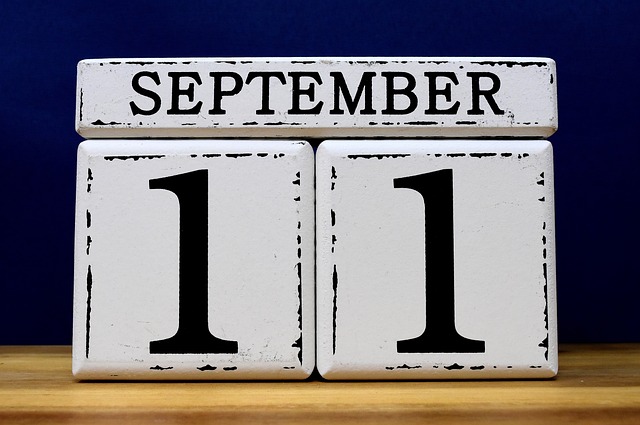How To Claim Benefits For A 9/11 Related Illness
The terrorist attacks on September 11, 2001, resulted in immediate devastation and lingering health issues. According to the Centers for Disease Control and Prevention (CDC), the aftermath affected first responders, volunteers, and survivors alike. Many continue to suffer from illnesses such as chronic rhinosinusitis, cancer, and PTSD.
The US government enacted several provisions to aid victims seeking compensation and benefits in response to these health concerns. These provisions include programs like the World Trade Center (WTC) Health Program and the September 11th Victim Compensation Fund (VCF).
The VCF provides financial compensation for eligible 9/11-related illnesses, while the WTC Health Program addresses the medical needs of responders and survivors.
This article will guide you through claiming benefits for a 9/11-related illness.
Determine Your Eligibility
The WTC Health Program and the VCF have different eligibility requirements. However, there is some overlap.
For instance, to be deemed eligible for either program, you must have been at the disaster sites in New York or the Pentagon. Also considered are those in the Shanksville, Pennsylvania, crash site during or in the immediate aftermath of the attacks.
It’s advisable to review the 9/11 compensation fund eligibility criteria before applying for either program.
Enroll In The WTC Health Program
The WTC Health Program typically serves four groups of people:
- Fire Department New York responders
- WTC responders
- WTC survivors, specifically those that lived, worked, or studied in the NYC Disaster Area
- Pentagon/Shanksville, Pennsylvania responders
If you belong to one of these groups, consider enrolling in the WTC Health Program. It offers medical monitoring and treatment for illnesses scientifically linked to exposure to the 9/11 disaster sites.
Moreover, the WTC Health Program must cover the illnesses for which you seek benefits. Conditions typically covered under this program include:
- Acute traumatic injuries such as head trauma, burns, eye injuries, etc.
- Airway and digestive disorders like asthma, interstitial lung disease, and chronic rhinosinusitis.
- All types of cancers.
- Mental health conditions like Post Traumatic Stress Disorder, depression, anxiety disorders, etc.
- Muscular-skeletal disorders (for WTC responders only).
To enroll, submit an application detailing your experiences, supported by relevant documentation. You’ll likely receive an invitation to an initial health evaluation upon approval.
This evaluation determines whether the illness you seek benefits for is related to 9/11 exposure.
File A Claim With The VCF
Simultaneously with enrolling in the WTC Health Program, you should file a claim with the VCF. Filing a claim involves two main steps: registration and claiming.
First, complete an online registration form. By registering, you indicate your intention to file a claim to the VCF. At this stage, you don’t need to be sick or diagnosed with a 9/11-related illness. Registration deadlines vary on a case-by-case basis.
While registering with the VCF doesn’t require a medical diagnosis, making a claim does. Only illnesses covered by the WTC Health program are eligible. You need to provide documentation supporting your claim to the VCF. This documentation may include health records, death certificates, etc.
These documents can verify your presence in the disaster zone during the relevant periods. They can also confirm the health condition for which you’re seeking compensation.
Enlisting the help of a qualified attorney can streamline this process. They can ensure all documentation is correctly prepared and submitted on time.
Appeal A Denial
Regrettably, the VCF and WTC Health programs may deny your claims. Common reasons why your claim might be denied include the following:
- Submitting a claim with incomplete information. At times, the VCF and the WTC program may request additional information. Failing to provide it can lead to claim denial.
- Having an active lawsuit pending while filing a VCF claim.
- Missing the registration deadlines.
- Inability to prove that the health condition you suffer from is 9/11-related.
- Failure to demonstrate presence in the exposure zones.
When faced with a denial, consider the reasons provided and the deadlines for filing your appeal. At this juncture, it could be beneficial to enlist the help of an attorney specializing in 9/11 claims.
These attorneys can coordinate with your medical provider to gather additional information or documentation concerning your 9/11-related health condition. They can also help clarify the often confusing or ambiguous aspects of the program rules and eligibility criteria.
Proper guidance can fortify your claim and enhance your chances of success on appeal.
Make Your Claim Today
Living with a 9/11-related illness brings its set of challenges, compounded by the added complexity of navigating benefit claims. Although it is possible to traverse this path alone, enlisting the aid of qualified legal professionals can make a significant difference.
They can assist with tasks such as compiling the necessary documentation and ensuring you meet all relevant deadlines. Their assistance could significantly enhance your chances of filing a successful claim

